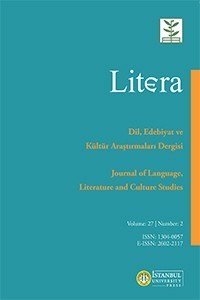The Impact of the Teacher’s Assessments on Learning in French Class in Ivory Coast
The teacher is an important actor in teaching-learning situations. It is the teacher who defines the objectives of the course, implements strategies to achieve them, and initiates and organizes teaching situations. It is also the teacher who chooses the tools needed to achieve the initial objective, identifies and explains the problem to be solved, explains the activity, gives instructions and organizes exchanges. The teacher is also the one who validates or invalidates the students’ proposals and evaluates what they have learned. In his activity, he is led to appreciate the work of the pupils. This facet of the teacher’s activity is the subject of this study, which aims to report on the impact of the assessments made by teachers in Côte d’Ivoire on their pupils. Analysis of the lexicon used by the teachers reveals both laudatory and pejorative assessments. The former lead all learners to take an active part in the construction of knowledge and in teaching-learning activities while the latter serve the pedagogical activity. This is all the more so since the latter humiliate and frustrate the learners. Appraisals should therefore not be made in all directions. Rather, they should be used for learning purposes by teachers in order to stimulate school performance, build on learners’ strengths and guide them in their learning.
Keywords:
Assessments, learning French class, lexicon,
___
- Barlow, M. (2003). L’évaluation scolaire, mythes et réalités. Paris : ESF.
- Bru, M. (2001). « Étudier les pratiques enseignantes : les raisons d’un choix ». Les Dossiers des Sciences de l’Éducation, 5, p. 5-7.
- Bruner, J. (1996). L’éducation, entrée dans la culture : les problèmes de l’école à la lumière de la psychologie culturelle. Paris : Editions Retz.
- Chapuis, C. (2011). « L’impact de l’évaluation sur la relation maître-élèves », Mémoire professionnel, Master of Advanced Studies et Diplôme d’enseignement pour le degré secondaire II, Lausanne, Haute école pédagogique, 53p.
- Circulaire n° 99-104 du 28-6-1999 Encart au BO n° 28 du 15 juillet 1999 NOR : SCOE9901441C - RLR : 550-1 - MEN - DESCO B6.
- Kouadio, K. J.C.D. (2013). Modes de recrutement et pratiques professionnelles des enseignants du secondaire général ivoirien : comparaison des secteurs public et privé, thèse de doctorat, université Félix Houphouët Boigny.
- Le Laye, Y. (2001). Savoir rédiger. Paris : Larousse.
- Marsollier, C. (2017). « Les conditions du bien-être à l’école », Economie et Management n0 162, p 38-43.
- Roegiers, X. (2008). L’approche par les compétences en Afrique francophone : quelques tendances. Repéré à http://www.ibe.unesco.org/fileadmin/user_upload/Publications/Working_Papers/currcompet_africa_ibewpci_7.pdf
- Talbot L. & Arrieu-Mutel, A. (2012). « Décrire, comprendre et expliquer les pratiques d’enseignement d’un professeur de lycée », Éducation et didactique [En ligne], vol. 6 - n° 3 | novembre 2012, mis en ligne le 30 novembre 2014, consulté le 08 janvier 2020. URL : http://journals.openedition.org/educationdidactique/1504.
- Başlangıç: 1954
- Yayıncı: İstanbul Üniversitesi
